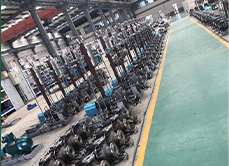Javanese
- Afrikaans
- Albanian
- Amharic
- Arabic
- Armenian
- Azerbaijani
- Basque
- Belarusian
- Bengali
- Bosnian
- Bulgarian
- Catalan
- Cebuano
- Corsican
- Croatian
- Czech
- Danish
- Dutch
- English
- Esperanto
- Estonian
- Finnish
- French
- Frisian
- Galician
- Georgian
- German
- Greek
- Gujarati
- Haitian Creole
- hausa
- hawaiian
- Hebrew
- Hindi
- Miao
- Hungarian
- Icelandic
- igbo
- Indonesian
- irish
- Italian
- Japanese
- Javanese
- Kannada
- kazakh
- Khmer
- Rwandese
- Korean
- Kurdish
- Kyrgyz
- Lao
- Latin
- Latvian
- Lithuanian
- Luxembourgish
- Macedonian
- Malgashi
- Malay
- Malayalam
- Maltese
- Maori
- Marathi
- Mongolian
- Myanmar
- Nepali
- Norwegian
- Norwegian
- Occitan
- Pashto
- Persian
- Polish
- Portuguese
- Punjabi
- Romanian
- Russian
- Samoan
- Scottish Gaelic
- Serbian
- Sesotho
- Shona
- Sindhi
- Sinhala
- Slovak
- Slovenian
- Somali
- Spanish
- Sundanese
- Swahili
- Swedish
- Tagalog
- Tajik
- Tamil
- Tatar
- Telugu
- Thai
- Turkish
- Turkmen
- Ukrainian
- Urdu
- Uighur
- Uzbek
- Vietnamese
- Welsh
- Bantu
- Yiddish
- Yoruba
- Zulu
Telephone: +86 13120555503
Email: frank@cypump.com
Oct . 11, 2024 03:27 Back to list
Chemical Liquid Pump Selection and Applications for Efficient Fluid Transfer Solutions
The Importance of Chemical Liquid Pumps in Industry
In various industrial sectors, the efficient handling and transportation of chemicals are critical for optimal operations. Chemical liquid pumps play a pivotal role in this process, ensuring that liquids, whether hazardous or benign, are moved from one location to another with precision and safety. These pumps are designed to handle the unique challenges posed by the chemical industry, which includes issues such as corrosiveness, viscosity, and temperature fluctuations.
Types of Chemical Liquid Pumps
Chemical liquid pumps come in several types, each suited for specific applications and types of chemicals. The most common types include
1. Centrifugal Pumps These are the most widely used pumps due to their simplicity, efficiency, and ability to handle large volumes of liquid. They operate by converting rotational energy, usually from a motor, into energy in the fluid. Centrifugal pumps are ideal for low-viscosity liquids and are commonly used in water treatment and chemical processing.
2. Positive Displacement Pumps These pumps work by trapping a fixed amount of liquid and forcing it through the discharge pipe. Positive displacement pumps are suitable for high-viscosity fluids and offer precise flow rates. They are often used in applications involving thick sludges or other viscous chemicals.
3. Diaphragm Pumps Known for their ability to handle corrosive and hazardous materials, diaphragm pumps are widely used in laboratories and chemical processing plants. They employ a diaphragm that flexes to create suction and discharge, making them ideal for applications requiring careful fluid handling.
4. Peristaltic Pumps These pumps work by compressing and relaxing a hose to move the fluid through it. Peristaltic pumps are excellent for handling sterile, aggressive, or abrasive fluids, making them popular in pharmaceutical and food industries.
Key Features and Considerations
When selecting a chemical liquid pump, several factors must be considered to ensure the right fit for a specific application
.1. Material Compatibility The materials used in the pump must be compatible with the chemicals being pumped. For instance, stainless steel and certain plastics are commonly used to prevent corrosion and prolong the pump's lifespan.
chemical liquid pump

2. Flow Rate and Pressure Understanding the required flow rate and pressure is crucial for selecting a pump that meets operational demands. Pumps should be capable of maintaining desired flow rates under various operating conditions, including changes in temperature and pressure.
3. Viscosity The viscosity of the liquid being pumped significantly affects the pump choice. High-viscosity liquids require specialized pumps designed to handle thicker substances without causing damage or inefficiency.
4. Safety Features Given the potentially hazardous nature of the chemicals involved, many pumps come equipped with safety features. These may include leak detection systems, pressure and temperature monitoring, and automatic shut-off mechanisms to prevent spills and accidents.
Applications in Diverse Industries
Chemical liquid pumps find applications across a wide range of industries, including
- Chemical Manufacturing Here, pumps are essential for transferring raw materials, intermediates, and finished products throughout the production process.
- Oil and Gas From drilling operations to refining, chemical pumps handle various fluids, including crude oil, lubricants, and chemicals used in processing.
- Water Treatment In municipal and industrial water treatment facilities, pumps are used for the chemical dosing of treatment agents.
- Pharmaceuticals The precise and safe handling of chemical ingredients is crucial in pharmaceuticals, making specialized pumps indispensable for drug manufacturing and compounding.
Conclusion
The significance of chemical liquid pumps in the industrial landscape cannot be overstated. They are vital for ensuring the safe, efficient, and reliable movement of various chemicals, contributing to the productivity and safety of industrial operations. As technology advances, the design and functionality of these pumps continue to improve, allowing for even greater adaptability and efficiency in handling more complex and hazardous materials. Investing in the right type of chemical liquid pump is essential for any operation that values safety, efficiency, and reliability in its chemical processes.
-
Large Industrial Sludge Slurry Pump Mining Wear-resistant Solutions
NewsJul.28,2025
-
High-Performance Septic Tank Pumps for Reliable Wastewater Management
NewsJul.26,2025
-
High Efficiency Horizontal Split Case Pump for Industrial Use
NewsJul.25,2025
-
Flue Gas Desulfurization Pump for Efficient Chemical Processing
NewsJul.24,2025
-
High-Efficiency Axial Flow Pump for Water Transfer & Irrigation
NewsJul.23,2025
-
High-Efficiency Horizontal Split Case Pump for Industrial Use
NewsJul.22,2025










